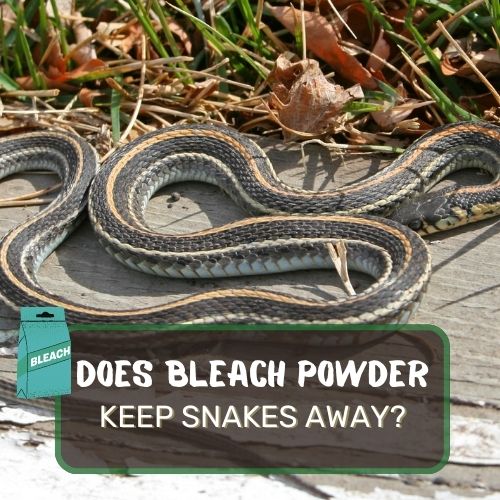
It’s a question many homeowners and garden enthusiasts grapple with.
In this article, we delve deep into the relationship between bleaching powder and snakes.
We’ve examined the science behind bleach, its effects on these reptiles, and its potential as a repellent.
Beyond just bleach, we’ve also explored alternative methods to deter snakes, ensuring a comprehensive guide for our readers.
By the end of this piece, you’ll have a clear understanding of the efficacy of bleaching powder against snakes and be equipped with knowledge on other humane and environmentally-friendly deterrents.
Stay with us as we unravel this intriguing topic.
Table of Contents
- 1 Does Bleaching Powder Keep Snakes Away? (Short Answer)
- 2 Why most people want to get rid of snakes with bleach
- 3 The Basics of Bleach
- 4 Can Bleach Kill Snakes?
- 5 Duration for Bleach to Affect Snakes
- 6 Using Bleach as a Snake Repellent
- 7 Practical Steps to Use Bleach Against Snakes
- 8 Alternative Chemicals to Repel Snakes
- 9 Conclusion
- 10 FAQ
Does Bleaching Powder Keep Snakes Away? (Short Answer)
Yes, bleaching powder can act as a deterrent for snakes. The strong, pungent odor of bleaching powder is believed to be off-putting to snakes, making them avoid areas where the scent is prevalent. However, its effectiveness as a repellent is temporary, as the smell dissipates over time. While bleaching powder might offer a short-term solution, it’s essential to approach snake control humanely and consider more sustainable, environmentally-friendly methods. It’s also crucial to note that direct exposure to bleach can be harmful to snakes, so it should be used responsibly.
Why most people want to get rid of snakes with bleach

Imagine this: It’s a warm summer evening, and you’re in your backyard, enjoying a quiet moment with a book. The sun is setting, casting a golden hue over everything, and the only sound you hear is the gentle rustling of leaves.
Suddenly, out of the corner of your eye, you spot a slithering movement. A snake! Panic sets in. You remember that bottle of bleaching powder in your laundry room and wonder, “Could that be my quick solution?”
This scenario isn’t uncommon. Snakes, for many, are a symbol of fear and danger. Their unpredictable movements and the potential threat some species pose have led to a deeply ingrained aversion in many of us.
It’s no wonder that when confronted with these reptiles, our first instinct is to find the quickest way to “get rid” of them.
Now, why bleach?
Well, bleach is a household staple. It’s readily available in most homes, known for its potent disinfecting properties and its ability to deal with pests.
Stories circulate in neighborhoods and online forums about how bleach can be a one-stop solution for various problems, from mold removal to, you guessed it, snake deterrents.
Moreover, the strong, pungent smell of bleach is believed by many to be a repellent for various pests. The logic goes: if it’s strong enough to kill germs and make humans wince at its smell, surely it would deter a snake.
This line of thinking, combined with the urgency to act when faced with a snake, makes reaching for that bottle of bleaching powder an almost instinctive reaction for many.
However, the real question remains: Is this method effective, or is it just another urban myth? As we delve deeper into this topic, we’ll uncover the truth behind the popular belief and analyze whether bleaching powder truly keeps snakes at bay.
The Basics of Bleach
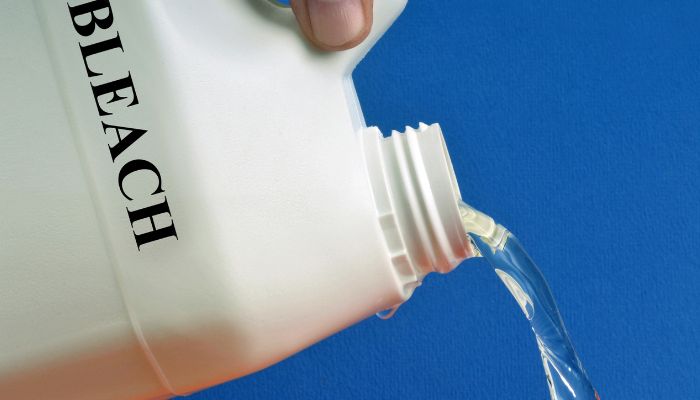
Bleach is one of those household names that almost everyone is familiar with. But beyond its reputation as a formidable cleaner, what really is bleach?
What is bleach and its common uses?
Bleach, in its essence, is a powerful chemical agent used to whiten or disinfect. Its uses span a wide range, from ensuring our white clothes maintain their brilliance to keeping our homes free from harmful germs.
It’s the unsung hero in our battle against stains, bacteria, and viruses. Whether it’s the kitchen countertop, bathroom tiles, or a stained white shirt, bleach often comes to the rescue, ensuring cleanliness and hygiene.
Chemical components of bleach: chlorides, sodium hypochlorite, and Hydrogen peroxide
Diving deeper into its composition, bleach isn’t just a singular entity. It’s a term that encompasses several compounds. The most common type of bleach, the one you might find in your laundry room, primarily contains sodium hypochlorite.
This chemical is what gives bleach its distinctive chlorine smell and its potent disinfecting properties.
Another type of bleach is based on hydrogen peroxide. This variant is often used for personal care, like hair bleaching, and for its antiseptic properties in medical settings.
Both types, though different in composition, are strong oxidizing agents, making them effective against a plethora of microorganisms.
Its role as a versatile household cleaning agent
Bleach’s versatility is truly remarkable. Beyond laundry and disinfection, it plays a crucial role in various cleaning scenarios. Need to sanitize your child’s toys? Bleach.
Want to ensure that the cutting board is free from salmonella? Bleach. From mold removal in damp corners of the house to purifying water during camping trips, bleach has proven time and again its indispensability in our lives.
However, with such potent properties, it’s essential to handle bleach with care, ensuring it’s used correctly and stored safely. And while its cleaning prowess is undeniable, the question remains: can it really deter snakes? Let’s delve deeper to find out.
Can Bleach Kill Snakes?

When it comes to the age-old question of whether bleach can kill snakes, the answer might surprise many. Let’s dive into the nitty-gritty of this intriguing query.
Affirmation that bleach can indeed kill snakes
Yes, bleach has the potential to kill snakes. While it might sound like an urban legend or a tale from a neighbor, there’s scientific reasoning behind this claim.
The potent chemicals within bleach, which make it an excellent disinfectant and cleaner, can also be lethal to snakes.
How bleach affects snakes
Snakes, like all living organisms, have a delicate internal balance. The introduction of a strong chemical agent, such as bleach, can disrupt this balance, leading to fatal consequences.
The chemicals in bleach, especially sodium hypochlorite, can cause severe internal damage if ingested or inhaled by the snake.
The concept of bleach poisoning in snakes
Bleach poisoning isn’t exclusive to humans or household pets. Snakes too can suffer from this condition.
When exposed to bleach, either through inhalation of its fumes or ingestion, snakes can experience a range of symptoms, from respiratory distress to internal burns, leading to a painful death.
Two major ways snakes can get bleach poisoning: Inhalation and Ingestion
Inhalation occurs when a snake is exposed to the strong fumes of bleach. Given their close proximity to the ground, snakes can easily inhale these fumes, especially if bleach is used in large quantities.
On the other hand, ingestion can happen if a snake comes into direct contact with liquid bleach, perhaps by slithering through a puddle of it.
Duration for Bleach to Affect Snakes
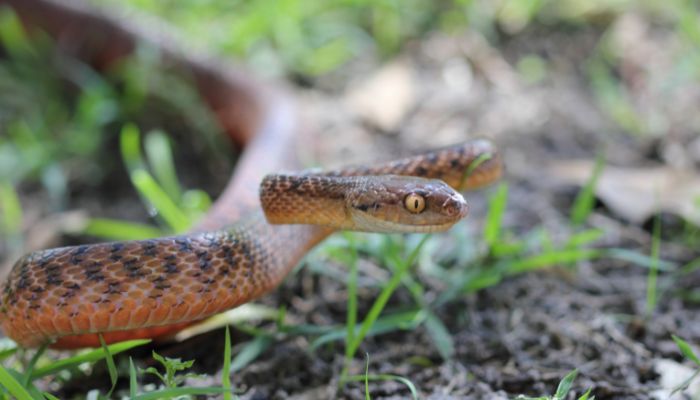
Understanding the timeline of how bleach affects snakes is crucial, especially for those considering its use as a deterrent.
Factors determining the time it takes for bleach to kill snakes
The impact of bleach on snakes isn’t uniform. Several factors come into play, such as the snake’s size, species, and overall health.
Additionally, the concentration of the bleach and the amount the snake is exposed to can significantly influence the outcome.
Typical duration for snakes to die from bleach poisoning
In most cases, when exposed to a substantial amount of bleach, snakes can succumb to its effects within an hour. However, this isn’t a hard and fast rule. Some snakes might show immediate distress, while others may take longer to exhibit symptoms.
It’s a grim reminder of the potency of bleach and the importance of using it responsibly.
Using Bleach as a Snake Repellent
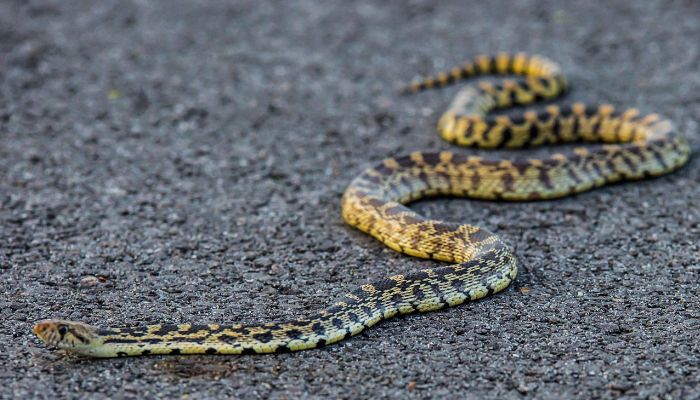
While the lethal effects of bleach on snakes might be alarming to some, there’s another side to this coin. Instead of using bleach as a killer, have you considered its potential as a repellent?
The idea of repelling instead of killing
Killing should never be the first solution, especially when it comes to wildlife. Every creature, including snakes, plays a vital role in our ecosystem.
Repelling them, rather than causing them harm, is a more humane and environmentally-conscious approach.
By deterring snakes from certain areas, we can coexist peacefully without causing unnecessary harm.
Legal implications in some countries regarding killing wild snakes
It’s worth noting that in many countries, killing wild snakes is illegal. These laws are in place to protect biodiversity and maintain ecological balance.
Violating such laws can lead to hefty fines or even imprisonment. Hence, it’s always advisable to be aware of local regulations before taking any action against snakes.
How bleach repels snakes: the role of strong fumes
Bleach’s strong, pungent odor is believed to be a deterrent for many pests, including snakes. The logic is simple: the overpowering smell of bleach is unpleasant for these creatures, making them avoid areas where the scent is prevalent.
The temporary nature of bleach as a repellent
However, it’s essential to understand that bleach’s repelling properties are temporary. Over time, as the bleach evaporates and its smell dissipates, its effectiveness as a repellent diminishes. This means that while bleach might offer a quick fix, it’s not a long-term solution.
The unique way snakes “smell” and how bleach affects this
Snakes have a unique olfactory system. Instead of noses, they use their forked tongues to “taste” the air, collecting particles and analyzing them in a specialized organ called the Jacobson’s organ.
The strong chemical compounds in bleach are likely detected by this organ, making areas with bleach unappealing to them.
Practical Steps to Use Bleach Against Snakes
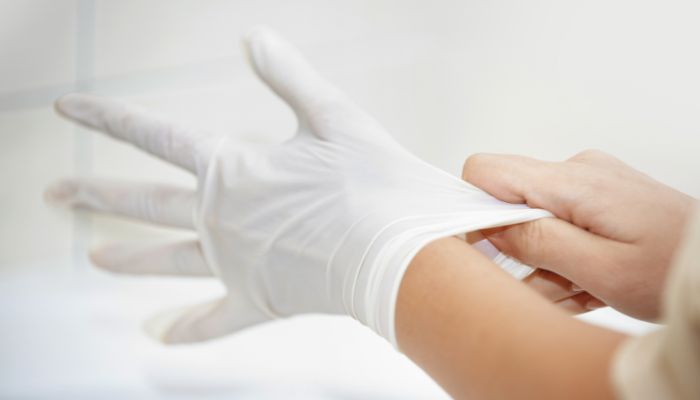
If you’re considering using bleach as a deterrent against snakes, it’s crucial to do so responsibly and safely.
Safety precautions when using bleach
Always wear gloves when handling bleach to avoid skin irritation. Ensure the area is well-ventilated, especially if you’re using bleach in large quantities, to prevent inhaling the strong fumes.
The method of soaking a rag in bleach
One effective way to use bleach as a snake deterrent is by soaking a rag in it. This method ensures a concentrated release of the bleach’s odor, making it more effective as a repellent.
Placement of the bleach-soaked rag
Place the soaked rag in areas where you’ve spotted snakes or where you believe they might frequent. Common places include garden corners, near water sources, or in shaded areas.
Considerations regarding pets, children, and soil
Remember, while you’re trying to repel snakes, you don’t want to harm your pets, children, or the environment. Ensure the bleach-soaked rags are out of reach of children and pets.
Additionally, avoid placing them directly on soil, as bleach can harm plants and disrupt the soil’s natural microbiome.
Alternative Chemicals to Repel Snakes

While bleach might be a commonly considered solution, it’s not the only one. There’s a plethora of alternative repellents that can deter snakes, each with its unique mechanism of action.
Let’s explore some of these alternatives.
Introduction to other repellents
Nature, in its vast wisdom, has provided us with a range of substances that can act as natural snake repellents. Many of these are household items or easily accessible, making them convenient choices for those wary of our slithering friends.
How different items repel snakes: through odor, skin irritation, or sound
The world of snake repellents is diverse. Some items repel snakes through their strong odors, which snakes find off-putting. Others might cause skin irritation, making the environment inhospitable for them. There are even some solutions that use sound to deter these reptiles.
Garlic and Onions
Both garlic and onions release strong odors when crushed, primarily due to the presence of sulfonic acid. This scent is not only pungent to us but also to snakes. Sprinkling crushed garlic or onion around your property can act as a deterrent.
Cloves and Cinnamon essential oil
Essential oils have gained popularity for their myriad uses, and snake repellent is one of them. Clove and cinnamon essential oils, in particular, emit strong scents that snakes find unappealing.
Dabbing cotton balls with these oils and placing them strategically can help keep snakes at bay.
Powdered sulfur
Sulfur, often available in powdered form, is known to irritate the skin of snakes. By sprinkling it around your property, you create a barrier that snakes are reluctant to cross, lest they experience discomfort.
Hot pepper
The capsaicin in hot peppers, which gives them their fiery taste, is a potent snake deterrent. Crushed pepper flakes or a homemade pepper spray can be used around the garden or home perimeter to deter snakes.
Lime and peppermint
Lime, with its caustic nature, can irritate snake skin, while peppermint’s strong aroma is off-putting to them. A mixture of crushed lime and peppermint oil can act as a dual-action repellent, deterring snakes through both skin irritation and odor.
Vinegar
Vinegar, especially white vinegar, has a sharp scent that snakes find unappealing. Spraying a vinegar solution around the property can help deter snakes, but remember, its scent dissipates over time, so regular application is necessary.
Conclusion
Navigating the world of snake repellents can be a daunting task, especially with the myriad of options available. From our exploration, it’s evident that bleach does have properties that can deter snakes.
Its strong, pungent odor and chemical makeup can both kill and repel these reptiles. However, the emphasis should always lean towards repelling rather than causing harm.
Every creature, snakes included, plays a pivotal role in our ecosystem. By choosing to repel rather than kill, we not only act humanely but also ensure the delicate balance of our environment remains undisturbed.
Moreover, with the legal implications in many countries against killing wild snakes, repelling becomes the safer and more responsible choice.
While bleach is a readily available option, it’s not the only one. As we’ve seen, numerous natural and household items can act as effective snake deterrents. From the fiery capsaicin in hot peppers to the soothing aroma of peppermint, nature offers us a plethora of solutions.
It’s an invitation to explore, innovate, and find solutions that are not only effective but also environmentally friendly.
FAQ
What powder are snakes afraid of?
Snakes tend to avoid areas sprinkled with powdered sulfur. The powder irritates their skin, making it an effective deterrent. However, always ensure it’s used in areas away from pets and children.
What smell do snakes hate the most?
Snakes have a unique olfactory system and are particularly sensitive to strong, pungent odors. They tend to dislike the smells of garlic, onions, and essential oils like cinnamon and cloves. These scents can act as natural repellents.
Does vinegar keep snakes away?
Yes, vinegar, especially white vinegar, has a sharp scent that snakes find unappealing. Spraying a vinegar solution around your property can deter snakes. However, its scent dissipates over time, so regular application is necessary.
Can Jeyes Fluid keep snakes away?
Jeyes Fluid is a well-known disinfectant and outdoor cleaner. Anecdotal evidence suggests that its strong odor can deter snakes. However, if considering its use, it’s essential to follow safety guidelines and ensure it doesn’t harm the environment or other wildlife.

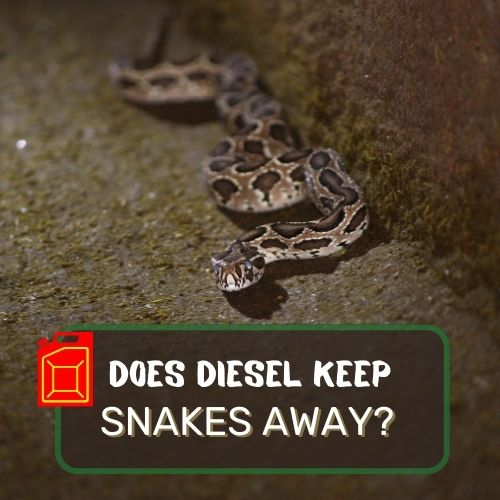
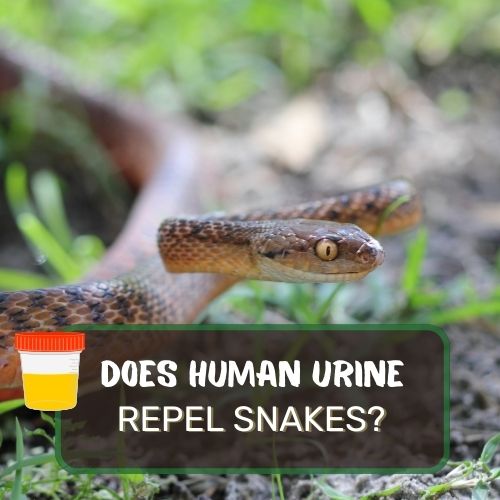
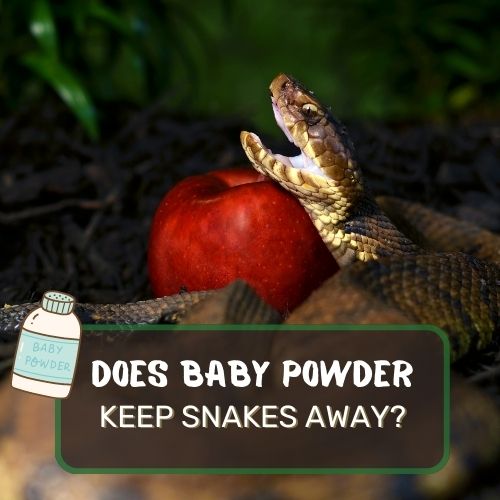
0 Comments